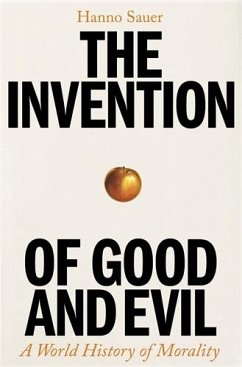For almost five million years, humans have been locked in a relationship with morality, inventing and reinventing the concepts of 'Good' and 'Evil', and weaving them into our cities, laws and customs. Morality is a concept that can feel joyless and claustrophobic, associated with restraint and coercion, restriction and sacrifice, inquisition, confession and a guilty conscience. For many, it is a device used to shame us into compliance. This impression is not necessarily incorrect, but it is most certainly incomplete. Hanno Sauer traces humanity's fundamental moral transformations from our earliest ancestors through to the present day, when it can often seem that we have never disagreed more over what it means to be good, and what it means to be right. But we can use our past as a basis for a new understanding of our future. Our current political disagreements may feel like the end of the world, but where will the evolution of morality take us next?








